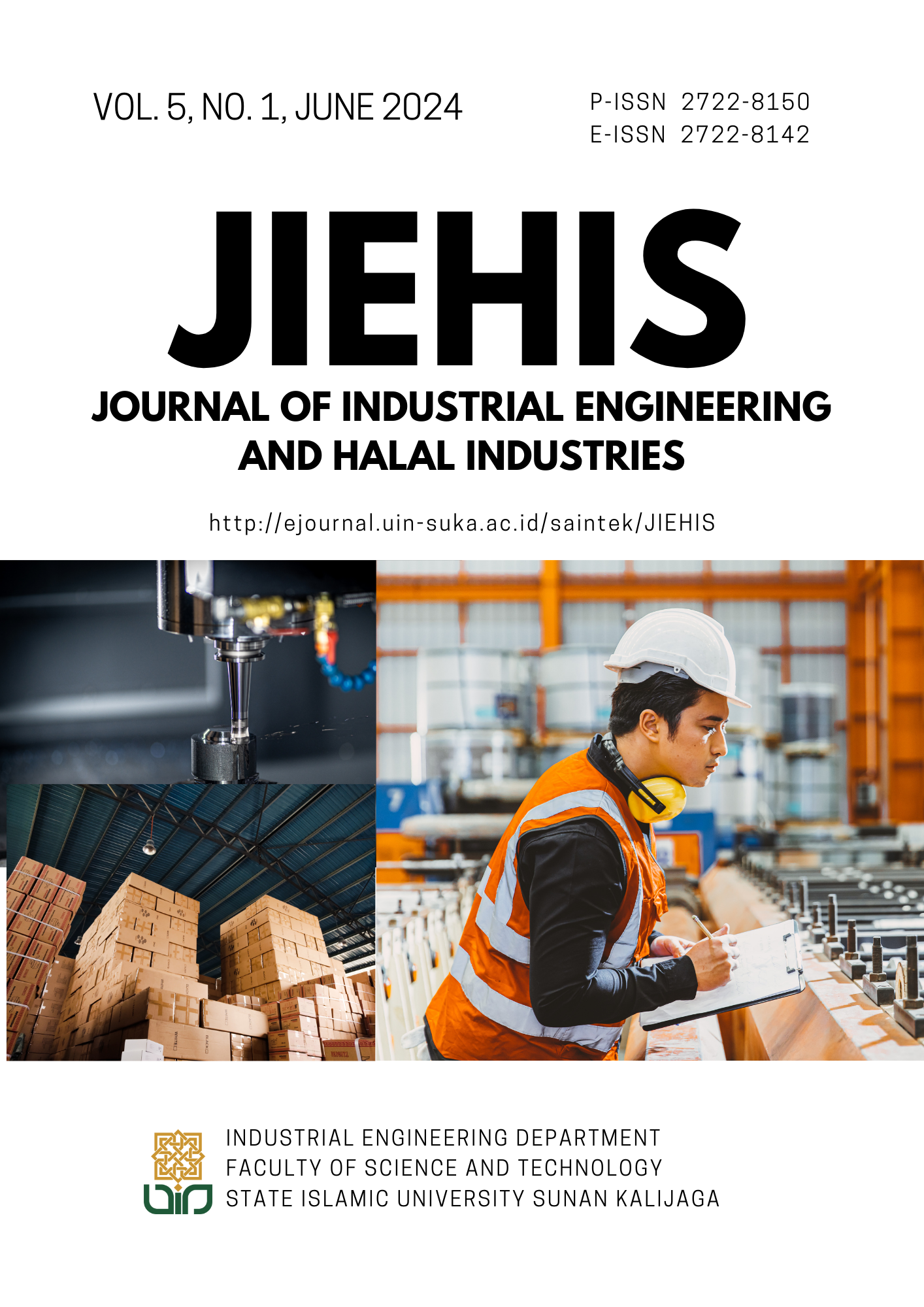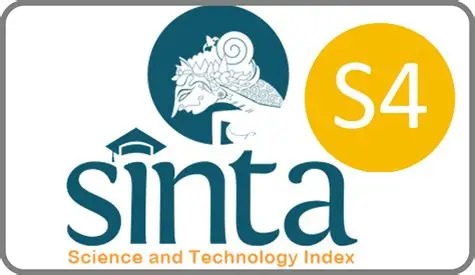Bibliometric Insights into Halal Retail: Mapping of Research Trends
DOI:
https://doi.org/10.14421/jiehis.4637Keywords:
bibliometric analysis, halal retail, research mappingAbstract
This study systematically examines and assesses the existing literature on halal retail to identify trends and emerging areas of interest. It seeks to offer insightful advice for market strategies, policy development, and research opportunities in the ever-changing halal retail sector. The study uses a bibliometric analysis and research mapping approach, employing data from 994 articles sourced from Google Scholar (GS). The data was analyzed using Harzing's Publish or Perish (PoP) to identify current and promising research areas. The study highlights the importance of exploring these trends further and combining them with less explored research areas. The relatively limited research in halal retail over the past decade is also noted, presenting a timely opportunity for deeper investigation. Originality lies in its comprehensive bibliometric analysis of the halal retail sector over a decade. It provides a unique perspective on evolving trends and emerging research areas, offering a valuable resource for scholars, market strategists, and policymakers interested in the halal market. Practical implications are significant for market strategists and policymakers in the halal retail sector. By identifying current trends and gaps, the study provides insights that can inform strategic decisions, enhance market positioning, and drive policy development to support the growth of halal retail.
References
Abdullah, M. A., & Azam, M. S. E. (2020). Halal industry in ASEAN: issues and challenges. Economics, Business, and Islamic Finance in ASEAN Economics Community, 77-104.
Abu Bakar, A. R. and Hussin, S. R. (2013) “What constitutes an Islamic retailer? Islamic store attributes from the perspectives of Islamic marketing principles,” International Journal of Sales, Retailing, and Marketing, 2(1), pp. 74–84.
Ahmad, A. N., Rahman A. Abd., & Rahman, S. Ab. (2015). Assessing knowledge and religiosity on consumer behavior towards halal food and cosmetic products. International Journal of Social Science and Humanity, (5)1, pp. 10-14.
Alvesson, M., & Sandberg, J. (2013). Constructing research questions: Doing interesting research. Sage.
Azam, M. S. E., & Abdullah, M. A. (2020). Global halal industry: realities and opportunities. IJIBE (International Journal of Islamic Business Ethics), 5(1), 47-59.
Aziz, Y.A., & Chok, N.V. (2013). The Role of Halal Awareness, Halal Certification, and Marketing Components in Determining Halal Purchase Intention Among Non-Muslims in Malaysia: A Structural Equation Modeling Approach. Journal of International Food & Agribusiness Marketing, 25(1), pp. 1-23.
Bakar, A. R. A., & Hussin, S. R. (2013). What constitutes an Islamic retailer? Islamic store attributes from the perspectives of Islamic marketing principles. International Journal of Sales, Retailing and Management, 2(1), 74-84.
Baran, T. (2021). A literature review and classification of the studies on “halal” in Islamic business journals (2010-2018). Journal of Islamic Marketing, 12(5), 1012-1024.
Butt, M. M., & Aftab, M. (2013). Incorporating attitude towards Halal banking in an integrated service quality, satisfaction, trust and loyalty model in online Islamic banking context). International Journal of Bank Marketing, 31(1), pp. 6-23.
Cooper, I. D. (2016). What is a “mapping study?”—Journal of the Medical Library Association: JMLA, 104(1), 76.
Delgado‐López‐Cózar, E., & Cabezas‐Clavijo, Á. (2013). Ranking journals: Could Google Scholar Metrics be an alternative to Journal Citation Reports and Scimago Journal Rank? Learned Publishing, 26(2), 101-114.
Donthu, N., Kumar, S., Mukherjee, D., Pandey, N., & Lim, W. M. (2021). How to conduct a bibliometric analysis: An overview and guidelines. Journal of Business Research, 133, 285-296.
Febrianti, M., Qurtubi, Q., Jaafar, H. S., Faisol, N., & Zulkeflee, A. (2023). Bibliometric Analysis for Mapping Research on Planogram Using VOSviewer. International Journal of Computing and Digital Systems, 14(1), 667-677.
Jamal, A. & Sharifuddin, J. (2015). Perceived value and perceived usefulness of halal labeling: The role of religion and culture. Journal of Business Research, 68(5), pp. 933-941.
Haque, A., Sarwar, A., Yasmin, F., Tarofder, A.K., & Hossain, M. A. (2015). Non-Muslim consumers' perception toward purchasing halal food products in Malaysia. Journal of Islamic Marketing, 6(1), pp. 133-147.
Hashim, H., Hussin, S. R., & Zainal, N. N. (2014). Exploring Islamic retailer store attributes from consumers perspectives: An empirical investigation. International Journal of Economics and Management, 8(S1), 117-136.
Mathankar, A. R. (2018). Bibliometrics: An overview. International Journal of Library & Information Science (IJLIS), 7(3).
Nasution, M. D. T. P., Rossanty, Y. (2018). Country of origin as a moderator of halal label and purchase behaviour. Journal of Business and Retail Management Research (JBRMR), 12(2), pp. 194-201.
Omotehinwa, T. O. (2022). Examining the developments in scheduling algorithms research: A bibliometric approach. Heliyon, 8(5).
Pacific, A. (2010). Global Halal Industry : An Overview. Global Islamic Finance Report 2013, 140–159.
Rahman, A. Abd., Asrarhaghighi, E., & Rahman, S. Ab. (2015). Consumers and Halal cosmetic products: knowledge, religiosity, attitude and intention. Journal of Islamic Marketing, 6(1), pp. 148-163.
Tieman, M., & Ruiz-Bejarano, B. (2020). Halal Retailing: Closing the Last Mile in an End-To-End Halal Supply Chain. ICR Journal, 11(1), 147-152.
Tieman, M., van der Vorst, J. G. A. J., & Ghazali, M. C. (2012). Principles in halal supply chain management. Journal of Islamic Marketing, 3(3), pp. 217-243.
Sunny, J., Undralla, N., & Pillai, V. M. (2020). Supply chain transparency through blockchain-based traceability: An overview with demonstration. Computers & Industrial Engineering, 150(December 2020), 106895.
Yanti, R., Febrianti, M. A., Qurtubi, & Sulistio, J. (2022). Halal blockchain: Bibliometric analysis for mapping research. Asian Journal of Islamic Management, 4(1), 72-85.
Zulfakar, M. H., Anuar, M. M., & Ab Talib, M. S. (2014). Conceptual framework on halal food supply chain integrity enhancement. Procedia - Social and Behavioral Sciences, 121(19), pp. 58-67.
Downloads
Published
Issue
Section
License
Copyright (c) 2024 Prita Nurkhalisa Maradjabessy, Roaida Yanti, Qurtubi, Danang Setiawan, Harlina Suzana Jaafar

This work is licensed under a Creative Commons Attribution-ShareAlike 4.0 International License.
(c) The Author(s). This article is distributed under a Creative Commons Attribution-ShareAlike 4.0 International License.






